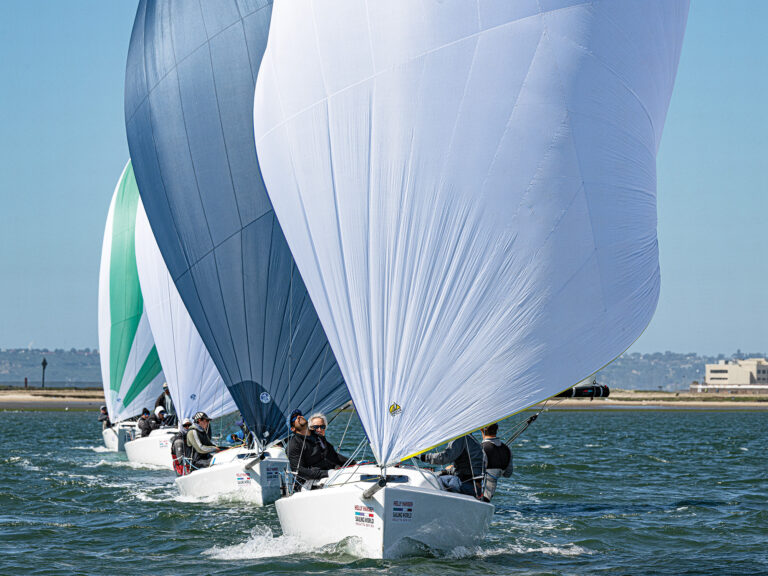0600 hours We heard that Mari-Cha IV finished yesterday morning, beating Atlantic’s 100-year-old record, which says more about the Atlantic than it does about Mari-Cha. After all, MC IV is at the very peak of 21st century yacht design and construction and has made the same passage in 6 days, 17 hours, 52 minutes and 39 seconds, during a record attempt in 2003. Still, it’s a great accomplishment for a boat that’s leapt over every hurdle that owner Robert Miller has set for it. And although Maximius finished second on line honors, it corrected out on top of MC IV and gave the much larger boat a serious run for its money. For more on Mari-Cha IV’s finish click here. We’ll watch with interest to see how Mari-Cha does this summer when it takes on the Mediterranean distance race circuit We continue to sail east at a good pace, averaging about 40 miles every 4 hours. At this rate we’re looking at a finish either Monday or Tuesday at The Lizard, a few hours later off The Needles, depending upon the tides. Our local knowledge experts Steve and Rob have been poring over Admiralty publications and muttering about Portland Bill and tidal gates. If we’re lucky the pattern of low-pressure systems will continue to parade across the North Atlantic and we’ll reach our way up the Channel in big breeze. Sariyah has been reaching at speed for a few days now, and we’d like to continue on this point of sail all the way to Yacht Haven Marina in Cowes. We’re back in fourth place and continue to draw a bead on the three boats ahead of us. Tempest is in great shape and looks tough to beat, but there’s a lot of water between here and the finish line and plenty of opportunities for all of us to do well or shoot ourselves in the foot. Whisper, as always, is our primary target. We briefly swapped places with the big sloop the other day, but have spent most of the race covering from behind. We have a lot of friends on board and wish them nothing but the best, but we would prefer they end up behind us at the finish. Kevin Burnham held center stage in the pilothouse yesterday, giving a Power Point presentation about his and Paul Forster’s win at the 2004 Olympics in the 470 class. It’s much the same speech that he’s given at yacht clubs around the United States since the Olympics, but listening to it in the middle of the Atlantic was special. Kevin is very good at putting his audience with him on the wire of the 470 at the regatta, and his descriptions of he and Paul standing on the podium to receive their medals is extraordinarily moving. We’ve all seen his intensity on the wheel during this event, and witnessed his enthusiasm for the great sailing we’ve had for the past few days; it’s easy for us to see how he’s been able to channel his love for the sport into a medal-winning performance. 1200 hours The conversation in the pilothouse when I came upstairs after five hours of sleep has turned to what to see in London. The Tower of London, The Tate Gallery, The Changing of the Guard; there are a lot of great things to see in London. Of course for some of us, it’s straight to the airport and on to the next regatta, or back to work and family. Talking about all this while we’re still over 900 miles for the finish indicates how long this race has taken. We’ve now been sailing for 11 days although sometimes it seems longer. What quickly became routine after a few days has become rote after 11. A new crewmember has been making its presence known in the past few days. Its name is George and its quickly risen to the top of the helming watch bill, driving straighter and at higher speeds that the average driver on any watch. George, of course, is the autopilot, and on some points of sail its performance is simply stellar. It is kind of strange, however, to sit and watch a wheel turn with no hands on it. Using George has other benefits as well; we tend to the sails even more often, and are keenly conscious of any changes in wind direction. We also suffer less from shoulder and back pain. Now, down below, when sailmaking or cooking is interrupted by a particularly bad wave, the shouts from below are aimed at George, not the flesh and blood crew.









